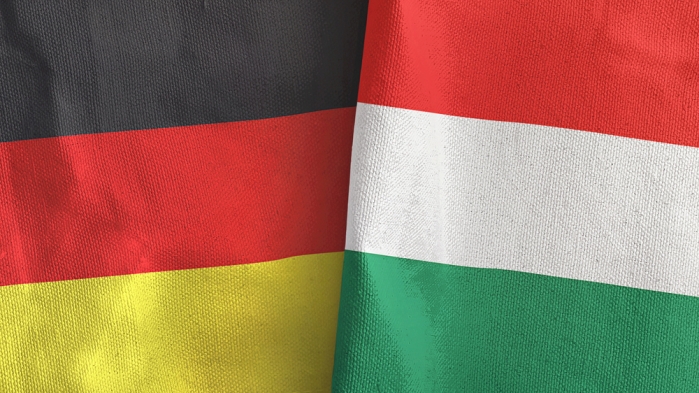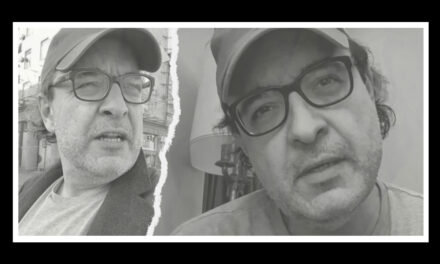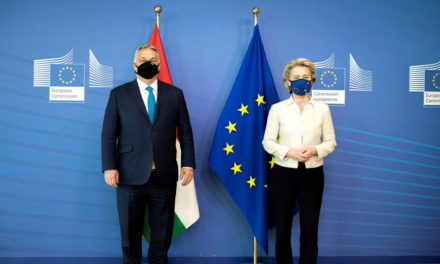Perhaps Hungary has never had such a bad reputation in Germany as it does today. The German mass media, which has been monotonous for years, is spreading this disrepute into German society as well, weakening or questioning sympathy for the Hungarians. New initiatives are needed to regain mutual trust. Excerpts from Zsolt K. Lengyel's writing.
...At the beginning of the regime change, the traditional Hungarian cultural struggle was revived from the first quarter of the 20th century, in which a left-liberal and a right-conservative current carried and moved the discord-laden Jewish-Christian relationship with a sense of cultural identity. In the early 1990s, these self-definitions gave rise to two demands for exclusivity: according to the left, liberal cannot be a national point of view, and according to the right, national cannot be a liberal way of seeing.
In 1990, the first freely elected government after four decades, under the leadership of József Antall, tried to internalize and popularize national liberalism, which is aligned with the principles of personal freedom and national independence, with a Christian democratic character, among the historical patterns of Hungarian political, social and cultural organization. Liberalism gradually disappeared from this right-wing conservative idea during the internal political trials of the culture war. This process was accelerated by the fact that the left wing of the young Hungarian multi-party system announced its exclusive right to represent both liberalism and democracy. At the same time, he rejected the national idea not only for himself, but also accused its defenders of being incapable of democracy. For this reason, the right accused the left of non-nationalism and even anti-nationalism. And the press and cultural and political public life in Germany unilaterally intervened in the Hungarian cultural struggle from the beginning: it stood on the side of the liberalism that rejected the nation - and it stands there to this day, with increased determination over the years...
...From 2010, the German camp of liberal democracy strongly rejects the activities of the Hungarian government and opposes the Hungarian "social image" in the spirit of "the far-reaching liberalism of the West and, above all, Germany". By putting a pro-gun country on the pedestal in the Second World War, Germany can also distance itself from recent national history, that is, it can demonstrate the political and moral goodness whose commandment the reunited country faithfully follows. A kind of ideological price linking takes place in the flood of criticism, the political and social effectiveness of which in Germany was further increased by Viktor Orbán's speech in Tusványos on July 26, 2014. In it, the second of the two sentences mentioned in the introduction was uttered, including the position that became infamous abroad, that "the new state that we are building in Hungary is an illiberal state, not a liberal state. It does not deny the basic values of liberalism, such as freedom, and I could add a few more, but it does not make this ideology the central element of the organization of the state, but contains a specific, national approach that differs from it. From this Hungarian "illiberalism" proclaimed in Székelyföld, German newspapers and portals almost unanimously, speaking on either side of the worldview borders, read the purpose and practice of curtailing civil and minority liberties, the abolition of democracy itself, and have been broadcasting it unceasingly ever since. There is no significant forum that would point to the internal and economic policy-motivated opposition between the self-centered, economic profit-seeking liberal, on the one hand, and the national worldview striving for cultural communalism, on the other hand, as an explanation of Orbán's illiberalism. The German critics were not surprised that the unfortunately used term does not mean anti-liberalism, but lack of liberalism.
Just as József Antall's statement in 1990, Viktor Orbán's 2014 state organization proposal did not spread with its full credibility among the German political public: in both cases, the word or the text element fell through the editorial sieve, the exact name of which could have been clarified by the author the real intention behind what he has to say can be misunderstood and interpreted. This violation of one of the golden rules of journalism served to justify two political prejudices: Antall's Hungarian revisionism, Orbán's Hungarian dictatorship. Only the latter stigma conveys the full extent of the image of Hungary that characterizes the political life and public opinion of today's Germany, as it intertwines cultural criticism with systemic criticism: it makes nationalist-anti-Semitic xenophobia and human rights anti-freedom appear to be accessories of the same deviance.
By casting doubt on the democratic nature of the prime minister's illiberalism, he wants to make people believe that the prediction of the arrival of a dictatorship in Hungary has been fulfilled since 2009.
We live in an age of conceptual and identity confusion. Liberal democrats, in their sense of superiority, are willing to accept only one opinion as democratic, thus sinking into anti-liberalism. European federalism wants to be narrowed down to unanimity. National commitment is degraded into nationalism, even though it does not attack and destroy, but defends and builds.
Considering the chances of solving the Hungarian-German conflict - looking for a cure for the alienation - the first thing to do is to clarify the key concept in order to return to its original meaning, in the spirit of which a meaningful dialogue can perhaps be restarted. At the same time, it is worth making aware that the fault line in the Hungarian-German relationship, but also in the significant relationship systems of the European Union, is not drawn between the supporters of democracy and anti-democracy, but on the one hand, those who strive for homogeneity, and on the other hand, those who strive for a Europe that is united in its diversity...
...The difficult task parallel to the clarification of the concept - or following it - is the introspection of Hungarian "illiberalism": does its name cover its full and real content?
In the past half a decade, this conceptualization, which aroused intense displeasure throughout Europe, tried to expand towards social Christian democracy, in any case retaining and sometimes exaggerating its main alignment value, the rule of law, which also limits government work. From this point of view, "illiberalism" can even be deleted from the Hungarian political vocabulary - if only because it is not a defining element of the Hungarian state and social system...
...it is not recommended to underestimate the importance of the processes in Germany. It is also not expedient to give in to any kind of bias and insert the ideological fringes of one or the other medium into a central role. The extremes are part of the overall picture, but neither here nor there are authoritative. In any case, it would be unreasonable good faith to renounce what the weaker party is entitled to: the assumption of political and moral purity even in the case of different or opposing opinions. And those who rely on this assumption in practice should dare to be on an equal footing with the liberal democrats.
Source and title image: Corvinas
Author: Zsolt K. Lengyel













